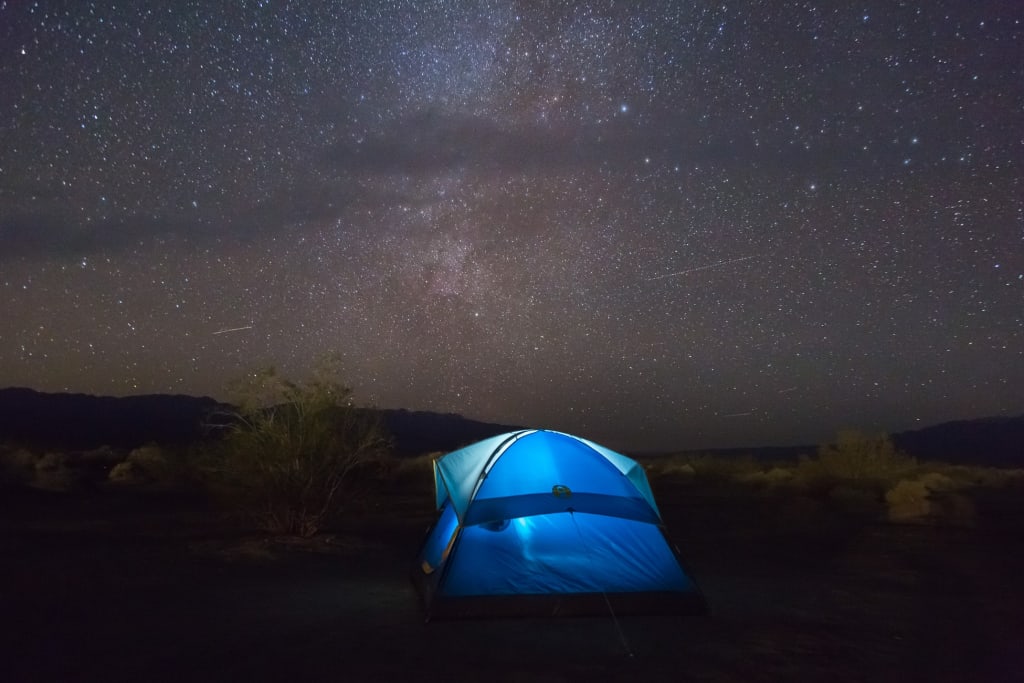
From sunny skies to stargazing, summer brings numerous outdoor joys to look forward to. For many, camping is one of them. Sleeping outside is a great way to spend more time with friends and family, meet new people, or spend quality time alone. If you've never camped out before, you may be nervous and excited about your first trip. There are many things to think about when you're camping, regardless of whether you'll be at a popular campground or in a remote patch of forest. From packing the right gear to keeping bears away from your tent, here are some tips and considerations to ensure your upcoming camping trip is a positive experience.
Get The Right Gear
If you're planning to camp in a tent, you'll need at least a sleeping bag and tent. Sleeping bags are temperature-rated, meaning they'll keep you warm down to the specified temperature. They're also made for specific seasons. Using a wintertime sleeping bag in the summer can add excess weight and be too hot for comfortable sleeping. Even worse, using a lightweight sleeping bag in the fall or winter may leave you freezing cold. Even if you'll be camping in mid-July, it's always a good idea to bring a sleeping bag, as temperatures typically drop at night. Along with the sleeping bag, consider bringing a sleeping pad for comfort and protection from the cold, wet ground. As for the tent, look for one that's made for one or two more people than the actual number who will be using it. This leaves extra room for storing gear in the tent, and it gives you room to spread out.
Prepare For Inclement Weather
Summer days are generally hot, humid, and sunny. However, it's not uncommon for thunderstorms to creep up by the afternoon or evening. Therefore, pack a full-length rain jacket with a hood. Bring at least one extra pair of socks and a spare towel, too. If you'll be camping in higher elevations or on a cooler day, pack an extra pair of gloves and wool socks. If you'll be camping in a tent, bring a tarp to cover it. Place all your belongings in a waterproof bag.
Ideal Food And Drinks
When you're camping, a good rule of thumb is that you should bring at least 1.5 pounds of food per person, per day. Food should be non-perishable, meaning it won't spoil along the way. Trail mix, protein bars, nuts, and dried fruit are all excellent choices. They're filling and don't require preparation, so you can consume them even if you're camping a place that doesn't allow campfires. If campfires are permitted where you're going, bring along ingredients for s'mores, which are a classic treat. As for beverages, plan to drink at least 2-4 cups of water per hour. You should bring a canteen or water bottle, along with a water filter to create a safe drinking supply. If you drink coffee or tea, bring some instant packets of coffee and tea bags, too. Pack your food in air-tight containers and dispose of trash either in a locked garbage bin or hang it in a sealed plastic bag, duffel bag, or sack at least 12 feet high.
Remember Those Batteries
Many campers diligently pack their flashlights, alarm clocks, and portable radios before leaving home. But all too often, they forget extra batteries! Battery technology is still dreadfully lagging behind, which means most of your gadgets will likely give up when you need them the most. To ensure your electronics are fully powered, put new (or fully charged) batteries in all electronic appliances before leaving. Pack extra emergency batteries for each appliance, and seal them in a waterproof bag. An alternative to standard batteries is a solar charger, which makes for a more environmentally-friendly camping expedition.
Practice Makes Perfect
Before leaving, it's always a good idea to practice setting up a tent and sleeping outside in a staged campground. Practice pitching the tent and taking it down in daylight and when you're alert first, rather than struggling to set it up after dark or after a long day of hiking. Look for an area with a flat and level surface, and remove any surrounding debris that could damage the tent. Remember to face the back of the tent towards the wind and cover the top with a securely fastened tarp.
Finally, tell someone you know what your travel plans are before you leave, including where you're going and when you plan to return. Always bring an emergency kit and an emergency blanket with you. Finally, if you're going to a campground, check with the park ranger first to find out if there are any hazardous areas or conditions to be aware of.






Comments
There are no comments for this story
Be the first to respond and start the conversation.